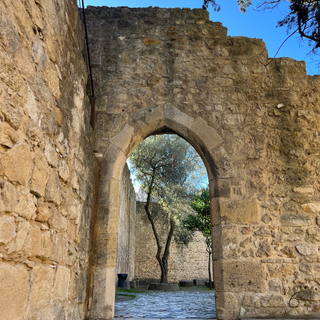Beyond Desolation: What to Do When You Have Nothing LeftNäide


Let’s explore four people who felt like desolate sanctuaries and learn what helped them endure.
JOB suffered unimaginable loss– everything he loved and owned was obliterated, his body suffered intense pain, and his friends’ encouragement” only deepened his wounds. He took his unfiltered anger and confusion to God, even saying he wished he’d never been born (Job 3:11-13). And yet, in his desolation, he chose to surrender to God and trust him (Job 13:15).
MOSES, overwhelmed by leadership, grew sick of the Israelites' relentless complaints. He’s done being the responsible one. At his lowest, Moses begged God to end his life to escape his burdens. God responded to his severe burnout. However, he didn’t rescue him from his responsibilities. Rather, He told Moses to elect 70 respectable elders to help share the burden (Numbers 11:10-17). Moses’s desolation lifted when he found others to help carry the weight.
ELIJAH, exhausted from fear and profound highs and lows, was completely worn out. At his breaking point, he asked God to take his life (1 Kings 19:4-9). God’s response? A firm, yet tender command to eat and rest. He saw Elijah’s body and soul needed reviving. God ordered intentional self-care. Without guilt or second guessing, Elijah embraced this divine permission for self-care.
PAUL endured unrelenting hardship, yet found a way through times of despair (2 Corinthians 1:8). He mastered two practices: letting go of the past (Philippians 3:13-14) and acknowledging the “both/and” of contrary experiences (2 Corinthians 4:8; 12:9,10). By quickly letting go of the past while owning the both/and of the present, Paul protected himself from utter desolation.
Naming the both/and (e.g. desolate sanctuary) expands our soul, allowing it to hold seemingly contradictory truths. Right now, to a large degree, you feel hopeless in your desolation. The fact you’re reading this reveals a thread of hope exists too. Even if it’s a mere two percent that hopes, you have both emotions right now. This is a powerful truth to grasp.
As we come to a close, let’s pray one of the most powerful “both/and” prayers in Scripture that I often cling to in times of weak faith, spoken by a scared and tired man to Jesus:
“Lord, I believe. Help my unbelief.” (Mark 9:24)
Remember, you are a desolate sanctuary– empty, undone, beautiful, and sacred AND there will be a day you experience more fullness. Hang on. Your hope lies hidden AND it is real.
May it be said of you as it was of Gideon, she continued on, weary yet pursuing.
**If you’d like to build more mental and spiritual strength in your desolate season, I’ve created a one-page resource you can find here.
About this Plan

Desolation: A condition of extreme emptiness, hopelessness, sadness, devastation. Can you relate? During times of desolation, whether in life (e.g. loss of job, home, relationship) or in your internal world (e.g. burnout, dark night of the soul), hope feels elusive. Over the next five days, we will explore what perpetuates desolation, meet others in Scripture who experienced it, and learn ways to move towards more fullness and hope.
More
Related Plans

Enduring Well as We Journey With God

BE a PILLAR

The Extra Mile: A 5-Day Devotional on Finding Faith and Purpose by Evan Craft

Give With Gusto: 3 Days of Tithing

The Table: What a Boy Discovered at Camp

In the Mirror of Life: 31 Days of Identity, Purpose, and Gratitude

Lighting Up Our City Video 5: In Step With the Spirit

How Is It With Your Soul?

Focus to Flourish: 7 Days to Align Your Life and Art With God’s Best
